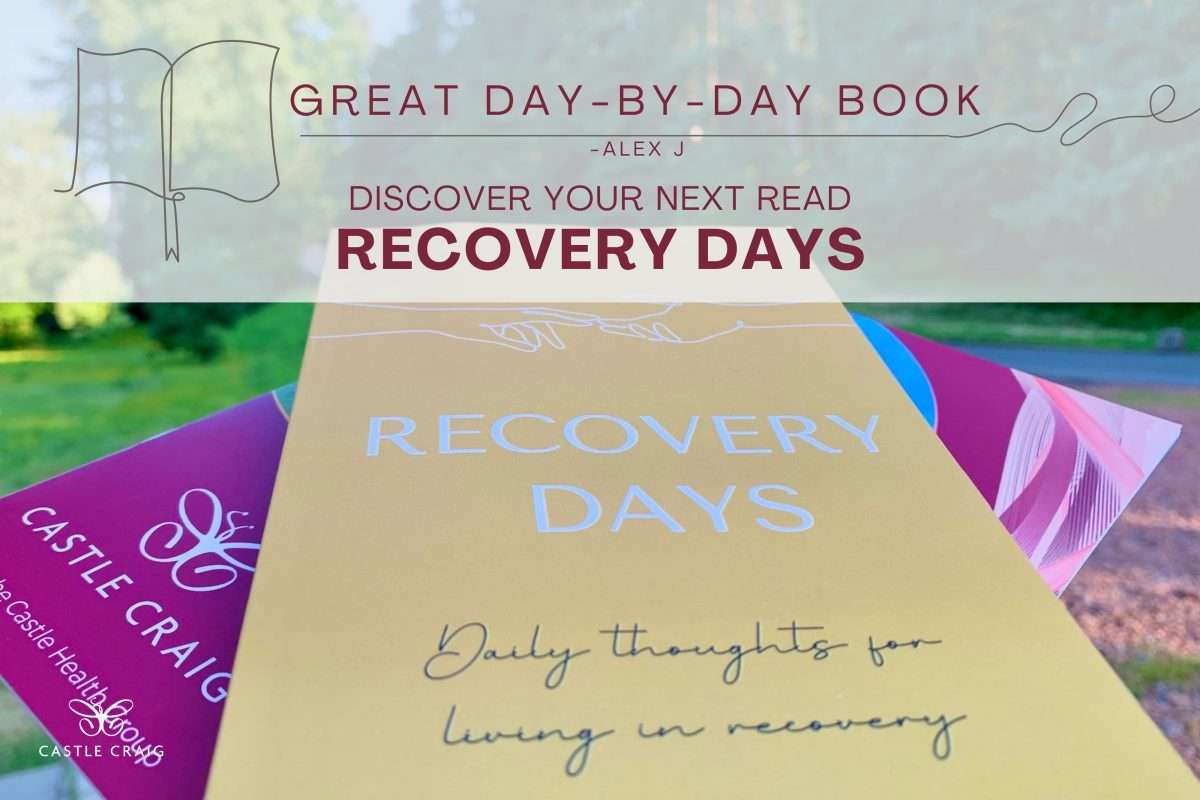Maintaining and growing your recovery after leaving rehab is a project every bit as important as the act of stopping your addictive behaviour. It is a challenge that you should face, plan and practice on a daily basis. You have to learn to build your life around your recovery, not the other way around.
Recovery is Not a Passive State
A life of recovery ‘beyond our wildest dreams’ sounds exciting, but in reality, what most of us need is simple ‘peace of mind’. That doesn’t mean that recovery is a passive thing. Far from it. Early sobriety is a fragile plant that requires work and nurture before it is strong enough to blossom.
Action
If you go home after leaving rehab thinking your work is all done, then you are likely to run into trouble pretty soon. Being clean and sober and simply hoping that things will stay that way just doesn’t work. Sure, recovery after a broken leg may demand prolonged rest but recovery from addiction requires consistent, positive action. Old sayings are often the best and the advice to: ‘Ask yourself each day; what can I do this day for my recovery?’ is a good example.

Download Our Brochure
Recovery is Not Just About Avoidance
The well-known mantra HALT – things to avoid being: Hungry, Angry, Lonely and Tired is valid and we should check ourselves for signs of these conditions every day. But happy recovery is about a lot more than mere avoidance of negative states of being. The miracle of a new life is ours for the taking, but we have to make the effort to grasp it.
Use the Tools
There are some wonderful ways of keeping your recovery fresh in your mind each day – most of them are free. Use them as much as possible:
- The Just for Today Card is available from Alcoholics Anonymous and could be the best 0.60p you ever spent (it can also be downloaded for free). These positive daily affirmations have inspired millions since they were first published in the Boston Globe in 1921 (they were later adopted by AA).
- Daily Meditation Book –there are many fine examples including the iconic Twenty-Four Hours a Day written by an AA member which has sold over ten million copies. Recovery Days published by Castle Craig is a thought-provoking reflective book of mindfulness for each day.

Castle Craig has its own meditation book: Recovery Days – Daily Thoughts For Living in Recovery.
- Smartphone Apps – apps and chatbots can provide information, reassurance and a daily structure as well as inspiration and are now extremely popular.
- Online Resources – many websites and online forums offer a wealth of information, support, and community interaction. They can be especially helpful when people are isolated by location or other reasons.
- Fellowship Slogans – never underestimate the power of the slogans – ‘Keep it simple’, ‘Let go and let God’ and ‘Nothing changes if nothing changes’ may seem nonsensical at first but in moments of great stress, they can be a lifeline.
- The Serenity Prayer – one of the great pillars of recovery, this simple prayer was written by Reinhold Niebuhr but millions of addicted people have applied his words to their greatest life challenges.
- Make your own Reminder Card – many recovering people carry a card in their wallet to remind them of danger. It may be a photo of themselves drunk, a picture of their family or simple words such as ‘Addiction Kills’.
Have a Plan
What actions should we take to grow our recovery and thus achieve peace of mind? We all need some structure in our lives, especially in early recovery, so make a proper written plan of what you intend to do (your rehab should help you with this before you leave?) Here are some key points – specify how you intend to address each one of them:
-
Establish a Strong Support System
Surround yourself with people who understand and support your recovery journey. This may include family, friends and support groups. The proven power and success of fellowships such as AA and NA make them an essential part of recovery that it would be most unwise to disregard. Even if you decide after trying, that they are not for you then, try alternatives such as Smart Recovery or individual counselling.
-
Holistic Health
We need a balanced lifestyle covering physical, mental, and emotional health. This includes a balanced diet, regular exercise, and getting enough sleep.
-
Learn Coping Skills
Everyone has bad days – learn to recognise these and develop healthy ways of dealing with them. Techniques like mindfulness, meditation, and relaxation exercises can be beneficial as well as sharing anxieties with others
-
Set Realistic Goals
Establish achievable short-term and long-term goals for yourself. They can provide a sense of purpose and direction in your recovery.
-
Stay Accountable
Keep yourself accountable for your actions and progress. Maintain open and honest communication with your support network and be willing to take responsibility for your mistakes. This is where honesty is important.
-
Avoid High-Risk Situations
Learn to identify and minimise exposure to people, places, and situations that may trigger cravings or temptations. This may involve making lifestyle changes such as not seeing old drinking buddies.
-
Practice Patience
Understand that recovery is a process, and setbacks may occur. Be patient with yourself and focus on progress rather than perfection. Acknowledge your mistakes without self-judgment. Addiction is a disease that you are taking steps to heal.
-
Engage in Therapy and Counselling
Where guidance is available, such as aftercare when you have left rehab, be sure to take advantage even if you think further therapy is unnecessary. While you are learning new habits (which can take several weeks to establish) you will benefit from the regular reminders and support that come from talking with another person.
-
Give Back
Volunteering or helping others who are also struggling with addiction can provide a sense of fulfilment and purpose. Helping others is also a great way of distracting from your own anxieties and obsessions. Remember the AA responsibility statement:
-
Practice Gratitude
Cultivate a positive mindset by focusing on the things you are grateful for in your life. Gratitude can help shift your perspective and promote a sense of contentment.
-
Stay Informed
Continue to educate yourself about addiction, recovery, and relapse prevention. Knowledge is a powerful tool in maintaining sobriety.
I am responsible. When anyone, anywhere, reaches out for help, I want the hand of AA always to be there. And for that, I am responsible.
Peace of Mind
A feeling of peace of mind and contentment includes some common factors:
- Sense of Purpose: regaining a meaningful purpose in life is important for people in recovery. Addiction can lead to a loss of direction and purpose. When we sober up, discovering a sense of purpose provides motivation and a reason to stay that way. This might involve pursuing a career, engaging in creative endeavours, or contributing to the community. A clear sense of purpose can help us stay focused on our goals and resist the temptation of returning to substance misuse.
- Sense of Belonging: active addiction leaves people isolated and disconnected from society. Loneliness is a common trigger for relapse. Being part of a supportive community or having a strong social network can help individuals feel connected and less alone. Group therapy, 12-step programs, and support from family and friends can all contribute to this sense of belonging, which can act as a protective factor against relapse.
- Doing What’s Right: In recovery, we often need to reevaluate our attitudes and behaviours. Doing what’s right may involve making amends for past mistakes, taking responsibility for one’s actions, and adhering to a set of ethical principles. A strong moral compass can guide us away from unhealthy behaviours and towards healthier, more responsible choices.
- It should be noted that each of these three components of peace of mind – purpose, belonging and doing right – can be acquired simply by attending Twelve Step meetings on a regular basis.
Priorities
Your sobriety is the most important thing in your life because, without it, nothing else will come right. Therefore, you must give it priority and never take it for granted. Ask yourself each day: “What will I do today for my recovery? How can I build my life around my recovery, rather than build my recovery around my life?” Remind yourself of this as often as you can.
At Castle Craig, everyone completing treatment will leave with a comprehensive plan for continuing care which is designed to build and maintain lasting sobriety and prevent relapse. Recovery is a lifetime project because addiction is never beaten completely. The joy of recovery comes from the feeling that we have been freed from a life of misery, but the price of that freedom is continual vigilance.
If you are worried about any aspects of addiction for you or a loved one then please give us a call. We are here to help, and discussions are completely confidential.

References
- https://quoteinvestigator.com/2012/07/26/just-for-today/
- https://recoverydays.com/
- https://www.alcoholics-anonymous.org.uk/
